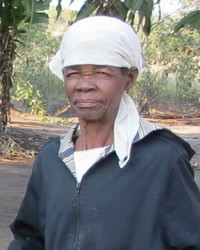Makonde in Mayotte

Photo Source:
Ton Rulkens - Flickr
Creative Commons
|
Send Joshua Project a map of this people group.
|
| People Name: | Makonde |
| Country: | Mayotte |
| 10/40 Window: | No |
| Population: | 2,000 |
| World Population: | 2,847,000 |
| Primary Language: | Makonde |
| Primary Religion: | Islam |
| Christian Adherents: | 1.00 % |
| Evangelicals: | 0.10 % |
| Scripture: | New Testament |
| Ministry Resources: | Yes |
| Jesus Film: | Yes |
| Audio Recordings: | Yes |
| People Cluster: | Bantu, Makua-Yao |
| Affinity Bloc: | Sub-Saharan Peoples |
| Progress Level: |
|
Introduction / History
The Makonde live on both sides of the Ruvuma River, which forms the border between Tanzania and Mozambique. They are one of the five largest ethnic groups in Tanzania. Their homeland touches the coast from Lindi to the Ruvuma River and stretches 180 kilometers to the west. A small number of the tribespeople are in Mayotte.
What Are Their Lives Like?
The Makonde live in an under-developed area and thus remain isolated with limited interactions or trading opportunities with their neighbors. They are known for defending their culture, way of life and land. Internationally they are best known for wood carvings of their family trees.
Most Makonde are slash and burn farmers who grow maize, sorghum and cassava. Those who live along the coast or near the Ruvuma River also practice fishery. Their diet is unique, which includes rats and snails.
What Are Their Beliefs?
On the surface the Makonde primarily practice Islam but in reality, they are animistic – practicing their traditional religion. They have been in contact with Muslim traders for hundreds of years and have received limited Christian witness. Yet, their religion centers on the veneration of their ancestors. This fact is highlighted in the carvings of their family trees that depict the older generation on the bottom who later then support future generations. The Makonde also like to carve household objects, figures, and masks, and their traditional religious practices are an animistic form of ancestor worship in nature.
What Are Their Needs?
It takes time and perseverance to reach the Makonde society with the gospel. One church has a Makonde pastor. He and his family have lived among them in a small town for 12 years. They have been faithful witnesses and God has blessed them. Church membership now consists of 24 believers, 22 of them are Makonde and four originate from a Muslim background.
Cross cultural missionaries are needed who are committed to identifying with the Makonde by speaking their language, eating their food, living among them and recognizing their value as made in the image of God – deserving respect as fellow human beings.
Prayer Points
Praise God for the few evangelical believers among the Makonde. Thank God for the churches that have already been established and the witness they are sharing with the lost.
Pray that believers from surrounding Christian communities would see the Makonde as God sees them.
May they step forward with a passionate presentation of the gospel through business and educational contacts.
May formal, contextualized evangelization efforts be initiated, so God's Kingdom can advance more effectively among the people groups.